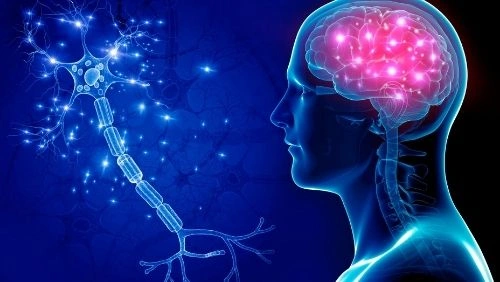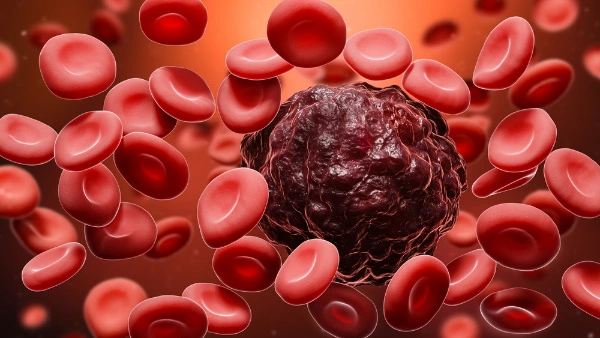ADHD is it genetic

If you tested your DNA with a personal genomics service like 23andMe, AncestryDNA, FamilyTreeDNA, MyHeritage or another testing company, you can learn more about your risk factors for hundreds of diseases. By clicking the button above ⬆️, you can upload your raw DNA data file and receive a personalized 250-page health report with research links that is the most comprehensive.
ADHD, a behavioral disorder that usually commences during childhood, is marked by a brief attention span (inattention), an incapacity to remain calm and still (hyperactivity), and inadequate impulse control (impulsivity). Although some individuals with ADHD experience difficulties solely with inattention or hyperactivity and impulsivity, the majority encounter challenges related to all three characteristics.
Individuals with ADHD exhibit behaviors that are both frequent and severe, which can disrupt their daily activities such as school, work, and relationships. Due to their inability to concentrate on tasks, those with inattention may experience distractions, forgetfulness, avoidance of tasks that require prolonged attention, difficulty organizing tasks, or frequent loss of items.
It is commonly believed that ADHD has a hereditary component, with a strong likelihood of being passed down through families. The genes inherited from one's parents are considered a major contributing factor to the development of this condition.
Studies indicate that individuals who have a family member with ADHD, such as parents or siblings, have a higher likelihood of also having ADHD.
The inheritance of ADHD is expected to be intricate and not attributed to a solitary genetic defect.
Gizer et al.'s meta-analyses revealed that ADHD was significantly associated with eight candidate DNA variants across multiple studies. These variants implicated six genes: 5HTT, DAT1, DRD4, DRD5, HTR1B, and SNAP25. Additionally, a meta-analysis of genetic association studies in adults with ADHD found a significant association between adult ADHD and BAIAP2, a gene involved in neuronal growth and guidance. These associations remained significant even after Bonferroni correction. However, the odds ratio for each association was small, less than 1.5, in both child and adult meta-analyses.
Numerous studies have investigated the dopamine transporter gene (SLC6A3), specifically a regulatory polymorphism consisting of a 40-base pair variable number of tandem repeats located in the 3′-untranslated region of the gene. This polymorphism results in two common alleles, 9R and 10R, with the latter being linked to ADHD in youth and the former to ADHD in adults. A meta-analysis revealed that the 9R allele is correlated with heightened DAT activity in adult humans, as determined by positron emission tomography.
According to Demontis et al., the genome-wide significant loci involve genes with significant biological functions. DUSP6 influences dopamine levels in synapses and regulates neurotransmitter homeostasis. SEMA6D is present in the brain and plays a role in neuronal wiring during embryonic development. ST3GAL3 contains missense mutations linked to ID, while LINC00461 is expressed in the brain and includes variants associated with educational attainment. MEF2C, another gene implicated at the locus, has been linked to ID and various psychiatric disorders.
The consortium performed various gene set analyses, which involved three sets of genes controlled by FOXP2: (1) genes that were more abundant in wild-type mouse brains compared to control FOXP2 knockout mouse brains; (2) genes that exhibited different levels of expression in wild-type versus FOXP2 knockout mouse brains; and (3) genes that were more abundant in the basal ganglia or inferior frontal cortex of human fetal brain samples. None of these gene sets were linked to ADHD. Additionally, a set of candidate genes for ADHD that had been previously suggested by a group of ADHD experts did not yield significant results. Only SLC9A9 showed a slight association with ADHD.
Follow the link of the selected polymorphism to read a brief description of how the selected polymorphism affects ADHD (Attention Deficit Hyperactivity Disorder) and see a list of existing studies.
SNP polymorphisms related to the topic ADHD (Attention Deficit Hyperactivity Disorder):
| rs3746544 | Variations in the muscarinic acetylcholine receptor M2 (CHRM2) gene are associated with alcohol dependence and major depressive disorder. |
| rs12364283 | The striatal polymorphism of the D2 receptor is a novel genetic marker of multiple addiction phenotypes: alcohol, nicotine, heroin and opioid dependence. |
| rs6314 | The serotonin receptor gene HTR2A polymorphism is associated with bipolar affective disorder and autism spectrum disorder. |
| rs1125394 | The DRD2 polymorphism modulates reward and emotion processing, dopamine neurotransmission, and openness to experience. |
| rs4436578 | The dopamine D2 receptor gene is associated with weight gain in schizophrenic patients with long-term treatment with neuroleptics. |
| rs1799978 | The dopamine D2 receptor gene is associated with weight gain in schizophrenic patients with long-term treatment with neuroleptics. |
| rs4648317 | Tendency to higher nicotine dependence, increased impulsivity and thrill-seeking. |
| rs6265 | Increased risk of ADHD or depression. Slightly faster decline in mental abilities in patients with Alzheimer's disease. The presence of this BDNF polymorphism is associated with differences in brain motor system functioning, altered short-term plasticity, and greater error in short-term motor learning. |
| rs752306 | Genetic polymorphism of the dopamine D4 receptor increases the risk of attention deficit hyperactivity disorder in children. |
| rs2283265 | Functional variants of the dopamine receptor gene are a potential factor in neuropsychiatric disorders. |
| rs11568817 | Functional polymorphisms in the serotonin receptor gene HTR1B predict increased anger and hostility. |
| rs1079597 | DRD2 polymorphisms confer an increased risk of autism spectrum disorders and schizophrenia. |
| rs1108580 | Dopaminergic pathway gene polymorphism and genetic predisposition to Parkinson's disease and schizophrenia. |
| rs1843809 | Breakage of the tryptophan hydroxylase 2 (TPH2) gene associated with attention deficit hyperactivity disorder. |
| rs7224199 | Association with major depression and response to antidepressants. The polymorphism is associated with selective serotonin and serotonin-norepinephrine reuptake inhibitor response in depressive disorder. |
| rs1611115 | Associated with lower plasma dopamine beta-hydroxylase activity, increased risk of Parkinson's disease, ADHD. |
| rs6277 | Associated with a 1.6-fold increased risk of schizophrenia. |
| rs140700 | A variant of the serotonin transporter gene (SLC6A4) is associated with suicidal behaviour in schizophrenic patients. |
| rs3785143 | A variant of a rare protective allele in the norepinephrine transporter gene causes risk of attention deficit hyperactivity disorder. |
| rs2020933 | A serotonin transporter gene whose function affects all cellular serotonin systems. |
| rs5569 | A polymorphism of the noradrenaline transporter gene (SLC6A2) is associated with attention deficit hyperactivity disorder. |
| rs28914829 | A polymorphism in the serotonin transporter locus (SLC6A4) predisposes to autism and compulsive rigid behaviour. |
| rs6347 | A functional variant of the dopamine transporter gene associated with the development of schizophrenia |
| rs2066713 | A functional serotonin transporter gene polymorphism is associated with major depression, schizophrenia and ADHD. |
| rs27072 | 2-fold risk of severe alcohol withdrawal. Associated with more severe symptoms after alcohol withdrawal, such as seizures and white fever. Possible increased chance of ADHD. |
| rs6296 | |
| rs1800544 | |
| rs1412005 | |
| rs11074889 | |
| rs4747989 | |
| rs130060 | |
| rs7722425 | |
| rs11903187 | |
| rs1515641 | |
| rs4810796 | |
| rs10463832 | |
| rs12613775 | |
| rs12513840 | |
| rs910191 | |
| rs9512900 | |
| rs10229603 | |
| rs789560 | |
| rs6733379 | |
| rs2764980 | |
| rs4533251 | |
| rs1521882 | |
| rs10492664 | |
| rs7236632 | |
| rs6869645 | |
| rs2042449 | |
| rs363043 | |
| rs363050 | |
| rs363039 | |
| rs363020 | |
| rs6332 | |
| rs1801260 | |
| rs2440390 | |
| rs6565113 | |
| rs552655 | |
| rs550818 | |
| rs1076563 | |
| rs998424 | |
| rs11564750 | |
| rs2652511 | |
| rs1051312 | |
| rs362987 | |
| rs4460839 | |
| rs12363125 | |
| rs1800499 | |
| rs11214606 | |
| rs2734838 | |
| rs2734833 | |
| rs460000 | |
| rs2617605 | |
| rs28363168 | |
| rs11657536 | |
About The Author
Li DaliLi Dali, a National Foundation for Outstanding Youth Fund recipient, is a researcher at the School of Life Sciences in East China Normal University. He earned his PhD in genetics from Hunan Normal University in 2007 and conducted collaborative research at Texas A&M University during his doctoral studies. Li Dali and his team have optimized and innovated gene editing technology, leading to the establishment of a world-class system for constructing gene editing disease models.


